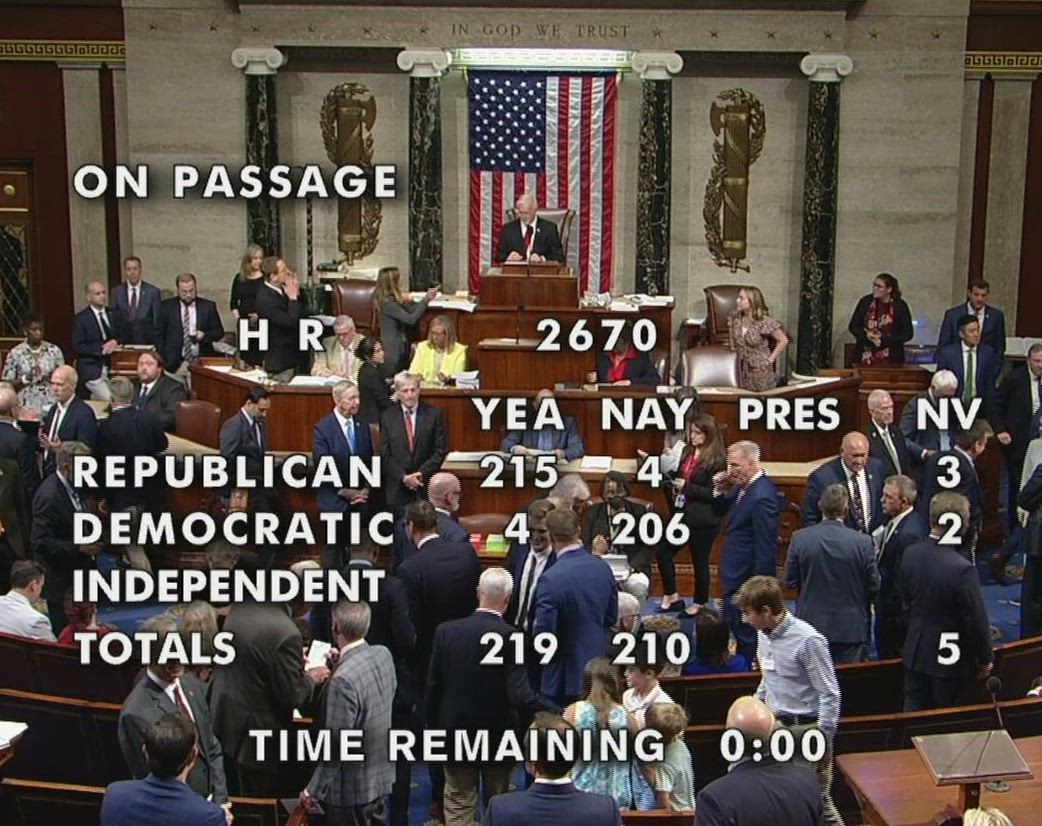The House Friday voted 219-210 to pass the annual National Defense Authorization Act (NDAA) needed to fund the military.
The vote was mostly along partisan lines, though four Republicans voted against the bill while four Democrats voted for it, rescuing the bill from failure.
Though the NDAA typically enjoys bipartisan support, passing each year for more than six decades, it came under threat this year due to a string of policy amendments from far-right House lawmakers that were broadly opposed by Democrats.
After the bill passed its first procedural hurdle in the House on Wednesday, amendments aiming to eliminate Pentagon policies on abortion, LGBTQ or racial identity led to an impasse, as did a push to add severe restrictions on U.S. military support for Ukraine in its war against Russa.
The contested amendments were approved narrowly, leading Democrats to accuse Republicans of using the defense spending legislation as a vehicle to push their policy agenda on social issues.
“Extreme MAGA Republicans have chosen to hijack the historically bipartisan National Defense Authorization Act to continue attacking reproductive freedom and jamming their right-wing ideology down the throats of the American people,” House Democratic Leader Hakeem Jeffries of New York, Democratic whip Katherine Clark of Massachusetts and Democratic caucus chair Pete Aguilar of California said in a joint statement. “House Republicans have turned what should be a meaningful investment in our men and women in uniform into an extreme and reckless legislative joyride.”
But House Speaker Kevin McCarthy (R-CA) countered that “radical programs that are forced on our troops at the expense of readiness are now eliminated.”
And Majority White Steve Scalise (R-LA) called the vote a “massive rebuke of that far-left ideology and that push that we’ve seen under the Biden Administration.”
Scalise added, “What you’ve seen today—and over the last week—is Republicans and Democrats coming together to say, ‘Let’s focus on our enemies all around the world.'”
However, the defense package is dead-on-arrival in the Democratic-led Senate. Majority Leader Chuck Schumer (D-NY) said earlier this week that the Senate would take up its own version of the defense bill, setting up more partisan wrangling as the House and Senate will have to reconcile their two versions of the legislation.


